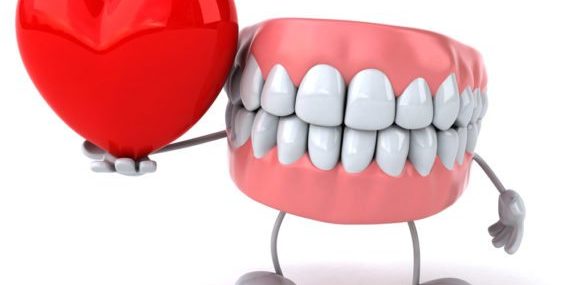Did you know that a healthier smile could lead to a healthier heart? New research suggests that an individual’s oral health mirrors the condition of their body as a whole. If your mouth is healthy, chances are that your body will be too. However, if you have poor oral health, then you have an increased likelihood of suffering from other issues, especially those that influence your cardiovascular health.
If the eye is a window to the soul, the mouth is a window to your physical health. If offers insight into what is oing on and offers a vantage point for detecting signs of systemic disease.
Systemic diseases are those that may affect the entire body, as opposed to specific parts and may include diabetes and poor heart health. Your mouth may act as an infection source to the rest of your body, with plaque buildup creating an environment where bacteria can accumulate and grow.
For a healthy individual with a good immune system, the presence of bacteria may cause no issue. However, for those with a weakened immune system, it may lead to the development of infection in other parts of the body, especially in the heart and bloodstream. For example, endocarditis is a cardiovascular infection cause by poor oral hygiene. Bacteria from the mouth enter via the bloodstream, sticking to the valves of the heart and negatively influencing their function. This same bacteria may also negatively affect arterial functions, consequntly leading to issues throughout the body.
While bacteria from your mouth would not normally enter your bloodstream, you should be brushing and flossing but not so hard as to cause bleeding, and those with poor oral health are at a higher risk of bleeding. Even medications that reduce saliva, as well as antibiotics that disrupt the bacterial balance of the mouth, may affect your normal defense against bacterial infection.
Long term gum infection can lead to decay and tooth loss, but research suggests that these oral infections may also lead to other long-term health issues. Poor oral health has been found to increase the difficulty of controlling diabetes , and infection may lead to insulin resistance. Gingivitis is suggested to play a role in clogging arteries due to bacteria in the mouth causing inflammation throughout the body, which leads to artery blockages. Someone with a declined dental state may also find themselves suffering from poor digestion, irritable bowel syndrome, and sleep disorders.
None of these things sound particularly fun, and fortunately, all of them can be controlled though appropriate dental care. Regular visits to the dentist will help you stay on top of any oral health issues, and will allow your dentist to keep track of any changes that occur as you grow older. Brushing and flossing twice a day, and eating a nutritious diet, particularly one high in Vitamins A and C will assist in keeping gum disease at bay. If you have dentures, ensuring that they are kept clean will go a long way, and those who smoke should be aware of the strong links between cigarettes and poor oral health.
Courtesy of http://livewellclub.com.au/FlipPageQLD/#p=166

